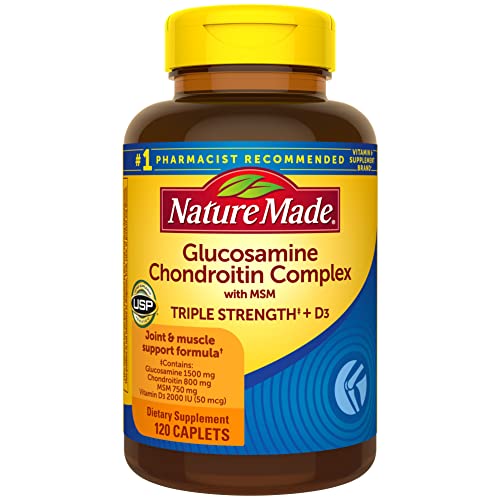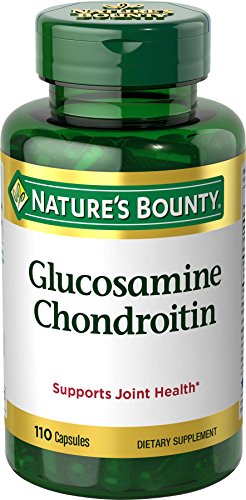Vitamin C Boosts Foot Ulcer Healing: Study Insights
Quick Summary: A clinical trial tested vitamin C on people with hard-to-heal foot ulcers, finding it sped up healing and prevented amputations better than a placebo. Half the participants started with low vitamin C levels, and those who got the supplement saw full ulcer recovery in 8 weeks. Glucosamine was added later for some, but the study mainly highlights vitamin C's benefits.
What The Research Found
This study showed vitamin C can make a big difference in healing chronic foot ulcers, which are open sores on the feet that often lead to infections, pain, and even amputations. People taking vitamin C healed much faster than those on a fake pill (placebo).
- Healing improved by a median of 100% in the vitamin C group, meaning ulcers fully closed for most, compared to just -14% in the placebo group (some even got worse).
- No one in the vitamin C group needed an amputation, while 44% of the placebo group still had unhealed ulcers after 8 weeks.
- About 50% of participants had low vitamin C levels at the start, with half of those having none detectable in their blood—linking low levels to slower healing.
The trial suggests vitamin C works quickly to normalize blood levels and promote ulcer repair, especially for those short on the nutrient.
Study Details
- Who was studied: 16 adults with chronic foot ulcers treated at a high-risk foot clinic in Australia. These were people facing serious risks like infections or amputations due to poor-healing wounds.
- How long: The main test ran for 8 weeks, with blood checks at 4 weeks to adjust treatments.
- What they took: Seven people got 500 mg of slow-release vitamin C daily (a pill that releases the vitamin gradually). Nine got a matching placebo pill. At 4 weeks, those with low vitamin C (from the placebo group) switched to vitamin C plus glucosamine tablets for the next 4 weeks, but the key results focused on the first 8 weeks of vitamin C vs. placebo.
The study was randomized and double-blind, meaning neither participants nor doctors knew who got the real treatment until the end, to keep results fair.
What This Means For You
If you or a loved one has chronic foot ulcers—common in people with diabetes or poor circulation—this research points to vitamin C as an easy, low-cost way to support healing. Low vitamin C (from diet or health issues) might slow recovery, so getting enough could reduce pain, improve daily life, and lower amputation risks.
- Talk to your doctor about checking your vitamin C levels if ulcers aren't healing; a simple blood test can spot deficiencies.
- Consider adding vitamin C-rich foods like oranges, strawberries, or bell peppers to your diet, or ask about a 500 mg supplement—it's cheap and over-the-counter.
- Glucosamine was used here as an add-on for some, but the study didn't test it alone, so don't rely on it without medical advice. Focus on vitamin C first for potential benefits.
Always pair this with standard care like wound cleaning and pressure relief—supplements aren't a cure-all.
Study Limitations
This research has some hurdles that mean it's not the final word on treatment.
- Small group: Only 16 people were involved, so results might not apply to everyone—bigger studies are needed.
- Mid-study changes: Some placebo users got vitamin C and glucosamine after 4 weeks, which could mix up long-term results.
- Short timeline: 8 weeks is a start, but it doesn't show if healing lasts or if side effects pop up later.
- Unclear on glucosamine: The dose wasn't specified, and its effects weren't tested separately, so we don't know if it helped ulcers on its own.
- No details on subgroups: It didn't explore if certain people (like those with diabetes) benefit more.
Experts recommend more research to confirm the best vitamin C dose and who responds best, but the findings support trying it for those at risk. Trial ID: ACTRN12617001142325.
Technical Analysis Details
Key Findings
The study found that 500 mg/day of slow-release vitamin C significantly improved foot ulcer healing compared to placebo (median 100% vs. -14% reduction in ulcer size, P = 0.041). All vitamin C recipients healed without amputation, while 44% of controls failed to heal. Baseline vitamin C deficiency (50% of participants, half with undetectable levels) was linked to poorer outcomes. After 4 weeks, deficient controls received both vitamin C and glucosamine, but the primary efficacy analysis focused on the initial 8-week intervention.
Study Design
This was a randomized, double-blind, placebo-controlled trial (RCT) involving 16 adults with chronic foot ulcers at a high-risk foot clinic. Participants were randomized to vitamin C (n=7) or placebo (n=9). Serum vitamin C levels were measured at 4 weeks, prompting open-label supplementation (vitamin C + glucosamine) for deficient individuals. The primary endpoint was ulcer healing percentage at 8 weeks.
Dosage & Administration
The intervention group received 500 mg of slow-release vitamin C daily. Placebo recipients took identical inactive tablets. After 4 weeks, participants with baseline deficiency in the control group were offered 500 mg/day vitamin C plus glucosamine (dose unspecified), while non-deficient controls continued placebo.
Results & Efficacy
- Healing rates: Vitamin C group achieved 100% median healing vs. -14% in controls (P = 0.041).
- Amputation outcomes: No amputations occurred in the vitamin C group; 44% of controls had unhealed ulcers at 8 weeks.
- Deficiency prevalence: 50% of participants had baseline vitamin C deficiency, with half showing undetectable levels.
- Serum levels: Vitamin C supplementation normalized serum concentrations within 4 weeks.
Limitations
- Small sample size (n=16), limiting generalizability and subgroup analysis.
- Crossover design flaw: Deficient controls received glucosamine after 4 weeks, potentially confounding long-term results.
- Short duration (8 weeks), insufficient to assess sustained healing or safety.
- Unspecified glucosamine dose: No details provided on dosage or formulation for combined therapy.
- No independent glucosamine analysis: Efficacy of glucosamine alone or in combination with vitamin C was not quantified.
Clinical Relevance
For individuals with chronic foot ulcers, particularly those with suboptimal vitamin C intake, 500 mg/day of slow-release vitamin C may accelerate healing and reduce amputation risk. However, the role of glucosamine remains unclear, as it was only administered to deficient controls after 4 weeks without isolated efficacy data. The low cost and accessibility of vitamin C support its consideration in clinical practice, though larger RCTs are needed to confirm optimal dosing, identify response thresholds, and explore glucosamine’s potential adjunctive effects. Clinicians should prioritize screening for vitamin C deficiency in patients with non-healing ulcers.
Note: This study does not provide standalone evidence for glucosamine’s efficacy in ulcer healing. Its inclusion was limited to deficient controls after 4 weeks, and outcomes were not analyzed separately for glucosamine use.
Original Study Reference
Vitamin C improves healing of foot ulcers: a randomised, double-blind, placebo-controlled trial.
Source: PubMed
Published: 2021
📄 Read Full Study (PMID: 32981536)




